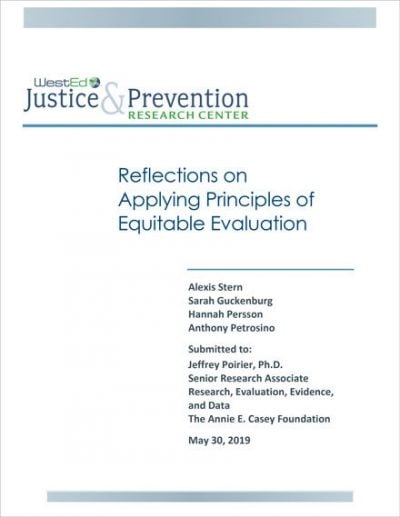Accounting for Everyone
Ensuring that all voices are represented in the evaluation — whether through interviews, focus groups or surveys — improves the quality and credibility of evaluation findings.

The Annie E. Casey Foundation enlisted WestEd — a nonprofit, nonpartisan research firm — to conduct four evaluations over a two-year period. This document revisits WestEd’s work and the authors’ broader experiences conducting research and evaluation studies. Along the way, readers will explore three basic questions: What is equitable evaluation? How can it be applied? And: What have the authors learned about implementing equitable evaluation principles?
Sharing ownership of the evaluation process isn’t automatic—or even typical. To support this approach, evaluators must be willing to engage in continuous self-reflection and adjustment; allow participants to drive decision making; and adapt traditional methods in response to stakeholder input.